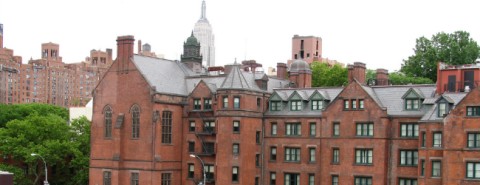Seminary faculty, dean at impasse

Nearly the entire full-time faculty at the Episcopal Church’s oldest seminary is battling with the school’s leadership, although the sides do not agree on whether the professors quit, were fired, or staged a walkout.
Either way, the dispute revives a long-standing debate about the future of General Theological Seminary in New York City, which has produced generations of bishops and noted theologians and is the only Episcopal seminary overseen by the national church.
Eight professors—Joshua Davis, Mitties DeChamplain, Deirdre Good, David Hurd, Andrew Irving, Andrew Kadel, Amy Lamborn, and Patrick Malloy—announced in late September that they would stop teaching classes, attending official seminary meetings, or attending chapel services until they could sit down with the board of trustees. The school reported ten full-time faculty in its 2013–2014 annual report to the Association of Theological Schools.





